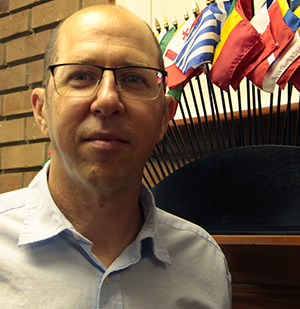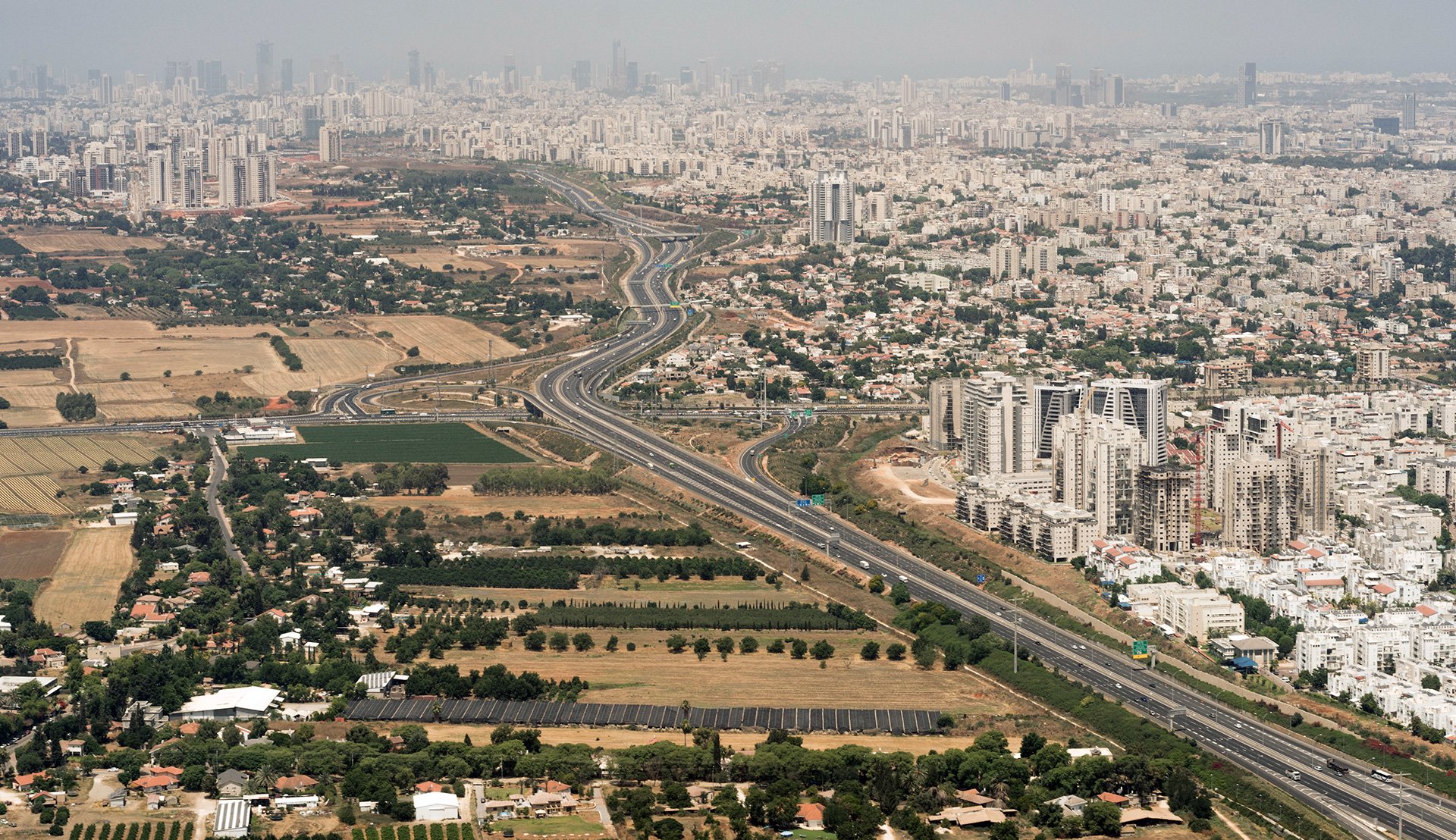
What happens to a city’s development when the lines between policy and politics are blurred? That’s what Erez Tzfadia, Ph.D., an Israeli Institute Teaching fellow hosted by the Bildner Center for the Study of Jewish Life, came to discuss with the Rutgers community.
“The Bildner Center is a center everyone should come to. They are very welcoming to scholars,” Tzfadia said. “They opened doors for me and gave me a lot of freedom with teaching my course, ‘Israel Modern Culture.’ The center is very famous in Israel. The scholars are considered top of the field, and it has to do with the quality of the university.”
The Israeli Institute aims to present the complexity of Israel, its populations, and its policies to the United States and worldwide. The goal of this Israeli Institute program is to bring eight to 12 scholars from Israel on a yearlong sabbatical at an American university to teach courses about Israel.
Tzfadia, an associate professor at Sapir College in Israel, focuses on research that explores how politics and perceptions determine the development of a space.
“Studying borders and the conflict in the Middle East, with the fact that it is an immigrant society and the internal conflicts between Jewish and Arabs, I started to figure out that whatever we consider planning or shaping space, sometimes has nothing to do with the ways in which space is developed,” he said.
Tzfadia uses the example of building a hotel in a city space to illustrate the ways in which politics can determine a development’s success.
“For example, if Hilton, an international hotel business, illegally built two extra floors in Jerusalem beyond the plan—say, seven floors instead of the approved five, what do you do? Will you destroy it? Kick out Hilton? No. Probably resolve it with a penalty,” he explained. “Now try to imagine a problem here in the United States where undocumented people from Mexico come and build illegal houses. What will you do? Probably consider this not a part of the plan or legal activities… and probably demolish the houses.”
To Tzfadia and his colleagues, it’s a matter of “logical capitalism and the ethnic logic.”
“Who are the people that have the right to build illegally and who are the people who do not have this right?” he said.
Tzafadia admitted that he also had reservations about emigrating to the United States for his fellowship, following some rumors he had heard from neighbors.
“I came here with my family and we’re kind of immigrants here. Temporarily of course, but the kids need to go to school, we need a house, so the process itself is as if we are immigrating, I remembered people saying … I would have a hard time,” Tzfadia said.
Rutgers Global assisted Tzfadia during his fellowship through many different service arms. Rutgers Global–International Student/Scholar Services helped Tzfadia and his family transition to Rutgers from Israel—every step of the way.
“I went with all the documents that Rutgers Global supplied…the process was so smooth, and whenever I had a problem or question, I immediately had an answer.”
Rutgers Global, through its programs office, also provided a grant to Tzfadia’s host, the Bildner Center for Jewish Studies, to host “GSharp City: Living Together Separately” that discussed the different scales of legality in shaping space. Tzfadia presented during this event.
He also taught an undergraduate course on Israel’s modern culture during his fellowship.
“If there is something Rutgers should be proud of, it’s the students,” he said. “I had 26 students with little to no information about Israel, and they came with so much motivation and were so open to study.”
Tzfadia’s classroom was made up of students from three disciplines: Jewish studies, Middle East Studies, and history. Students were asked to examine a case study unique to Israel and present their findings to the class—stimulating thoughtful debates and discoveries.
“One student… decided to study the Turkish Jewish community in Israel. The way she presented this community was, in a way, criticizing everything that I taught them, but on the other hand represented a deep understanding of everything I taught them,” Tzfadia said. “This was very important to me. I’m not trying to convince people. I want to open their eyes and develop a willingness to study. She did it perfectly.”
Another student discussed community conflict over the issue of school dress code.
“The way he analyzed the case study he managed to present it as a reflection to everything we studied in the course it was very interesting how he did it,” Tzfadia said, “There’s so many good examples, the students did a great job.”
Though his fellowship ended in June 2016, he said he was “extremely lucky” that the Israeli Institute decided to send him to Rutgers.
“The idea of spending a year in a public institution was extremely important for me,” Tzfadia said. “Good higher education is something that should be available to everyone regardless of background. This is something that you can find evidence of in my research, teaching, philosophy, and activism—I do believe that good and accessible education is possible only through public institutions.”
“Rutgers is familiar all over the world as one of the best research institutions. It’s really a great place.”

